Jill Dobbe’s extensive experience as an international educator enriches her fascinating travel memoir, Kids, Camels & Cairo, a book I highly recommend to those considering taking the plunge and working overseas. It is quite an insightful read, as is this article ‘Write What You Know’.
Write What You Know
By Jill Dobbe
Hemingway said it and I write by it.
It’s the advice I remember receiving, and the reason I became a published author in my fifties. Upon returning to the U.S. after living and working as an international educator in India, where our circumstances were more topsy-turvy than ever, my husband proposed the idea of writing a book. “You should,” he remarked offhandedly. “You know a lot about working abroad in international schools and we have survived many crazy adventures for you to write about.” He planted the seed that day and I have been writing memoirs and travel articles, ever since.
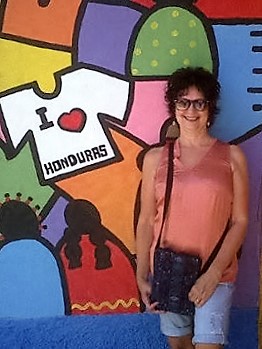
I am passionate about travel and education and found a way to combine the two into a lifestyle that suited me. I also learned that I have a passion for writing and as an international educator for twenty years now living in my seventh country, Honduras, I continue to have material inside me just waiting to be typed up. During our first 10 years when our two children were only babies, I kept journals so that someday they would know what our lives abroad had been like. Much later, I unearthed those journals and turned them into my first memoir. I relived our many journeys again as I read through my diaries typing them up into story form.
I’ve learned a great deal about writing, editing, and publishing since I wrote my first memoir. Even though I published traditionally, I was still completely naïve about the entire process. I knew about editing, but marketing was a whole new ballgame for me. Since that first so around, I also learned the importance of using beta readers for writing advice and other perspectives. It also goes without saying that good, strong editors are imperative. There are different types of editors who look at manuscripts differently. Sub-editors make articles accurate and readable, line-editors focus on the craft, and copy editors proofread for correct formatting of the text. Who knew there were so many types of editors? They all serve an important purpose however, and should be utilized before any author publishes.
My second book was published independently and I enjoyed the freedom of having my own timeline, while putting everything together myself-from the writing, to the cover design, to formatting the text, and choosing the font. I also felt I had a better grasp on the royalties I earned, and didn’t have to wait months to find out if I sold any books.
My memoirs are legacies I hope to leave my children one day. They are also informative travelogues that give educators wishing to go overseas, highlights of the lifestyle. Readers who like to travel can also learn about interesting and unusual places and sites around the world. My writings give a different perspective from that of a tourist, as living within the culture and experiencing life through the eyes of the locals is far different from visiting a place for a day or a week.
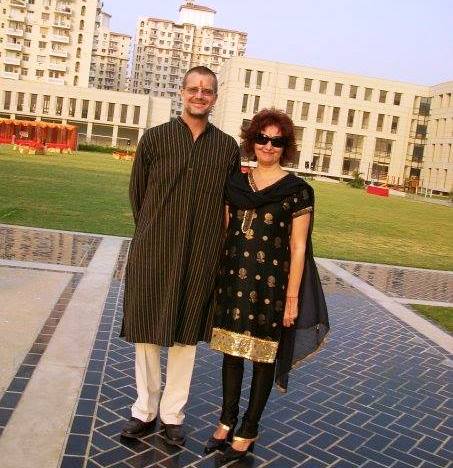
Writing personal memoirs can sometimes be difficult. It takes tenacity, honesty, and courage. When I wrote about my years as an elementary principal in a Muslim school in Cairo, and the many negative issues I encountered with Islamic students, teachers, and parents, my husband was afraid I was going to be placed on an ISIS hit list. No one’s life is perfect, and memoir writers must include the good, the bad, and the ugly in order to be truly authentic. It takes a great amount of detail when describing the places, feelings, emotions, and events in someone’s life in order to make readers empathize with the author. In the narratives of my travels, I write honestly and openly about the different scary, ridiculous, dangerous, and crazy adventures I found myself in. I also chose those experiences that I thought readers would enjoy the most, be able to relate to, and learn something from.
For aspiring memoir writers, my advice is to get your story down on paper and keep writing. Enjoy the process and experience of writing your manuscript and don’t worry about who will read it, buy it, or publish it; you will find an audience. As you write keep in mind the following:
- Be truthful and genuine, even if it hurts.
- Include intriguing descriptions of your settings, with wobbly legs I crab-walked over the sharp rocks and squatted on sacred Mt. Sinai.
- Use vivid details and your senses when describing important scenes, the smell of sewage in the village invaded my nostrils and made me want to puke.
- Connect your feelings, thoughts, and emotions to the major events in your life, observing how animals were mistreated in Cairo will forever sadden me and tarnish my feelings toward Cairo.
- Include tension, plot, and character development; just like any novel, memoirs need these features in order to engage readers and keep them turning the pages until the very end.
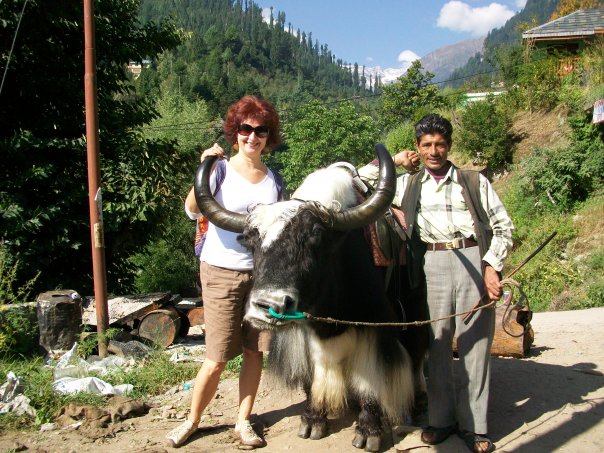
“I decided that I would write one story about each thing that I knew about.”
~Ernest Hemingway
About the Author
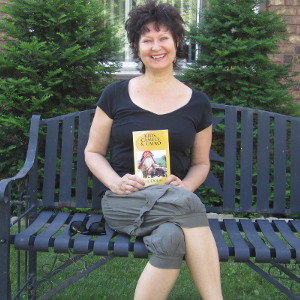 Jill is an international educator and published author who writes about her experiences living and working in schools and countries around the world. She presently lives in her seventh country, Honduras, with her husband, Dan, and her Yorkie-Poo, Mickey. While working as an elementary principal, Jill also writes, reads, takes photos of the beautiful people and countries of Latin America, and muddles her way through the Spanish language. Jill loves her life as an international educator, and most days, feels like she is living her dream.
Jill is an international educator and published author who writes about her experiences living and working in schools and countries around the world. She presently lives in her seventh country, Honduras, with her husband, Dan, and her Yorkie-Poo, Mickey. While working as an elementary principal, Jill also writes, reads, takes photos of the beautiful people and countries of Latin America, and muddles her way through the Spanish language. Jill loves her life as an international educator, and most days, feels like she is living her dream.
HERE WE ARE & THERE WE GO (2012) is Jill’s memoir/travelogue written about her family’s first ten years overseas and the humorous, crazy, and sometimes scary adventures they found themselves in.
KIDS, CAMELS & CAIRO (2016) is a book about Jill’s two years living and working in a Muslim school in Cairo, Egypt, where she lived and worked alongside Egyptians who taught her about their Islamic faith and reminded her when she was making another cultural faux pas.
She currently lives in her seventh country, Honduras. Learn more about Jill and her books on Facebook and Amazon.
Kids Camels and Cairo
A lighthearted read about my personal experiences as an educator abroad.
Traveling across the globe to work in an international school in Cairo, Egypt, was not exactly the glamorous lifestyle I thought it would be. I cherished my travels to the Red Sea, delighted in visiting the Pyramids, and appreciated the natural wonders of the Nile River. However, I also spent days without electricity or internet, was leered at by rude Egyptian men, breathed in Cairo’s cancerous black smog, and coaxed school work from rich, apathetic students.
Why the heck did I do it? So I could experience the unexpected, explore the extraordinary, and bask in the thrill of adventure!
Whether you’re an educator, a traveler, or just a curious reader, you will be astounded at this honest and riveting account of learning to live in an Islamic society, while confronting the frustrating challenges of being an educator in a Muslim school.
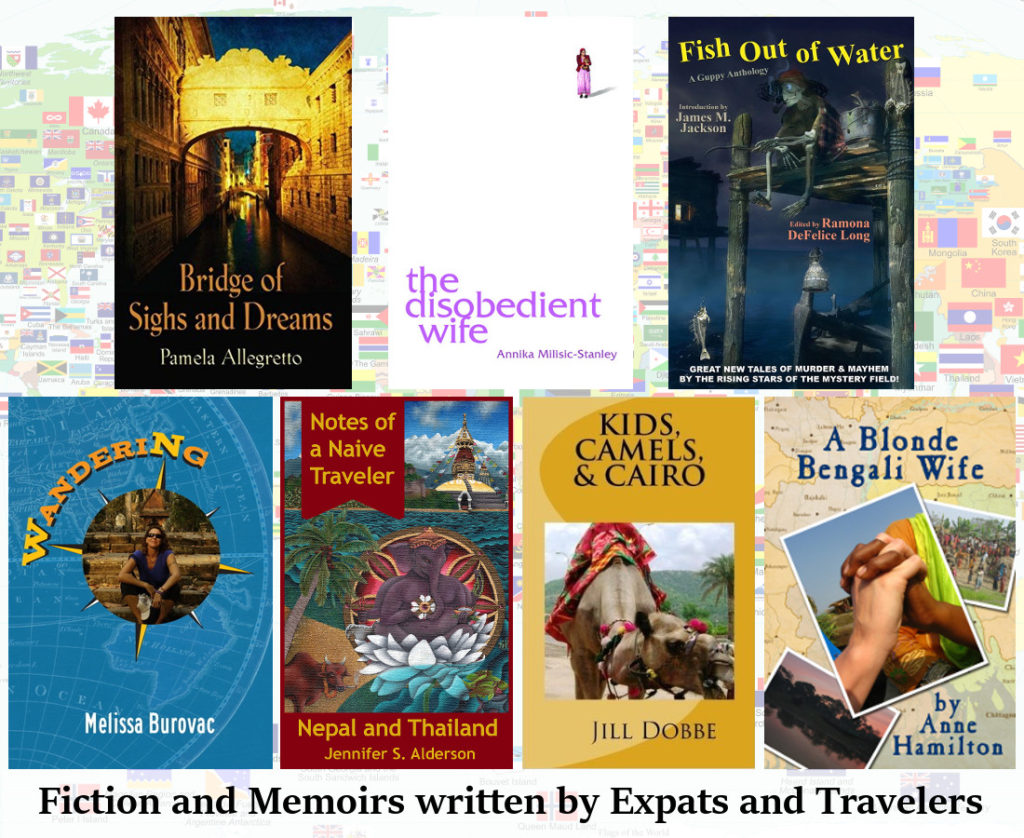
Enjoy this post? Check back Friday to read another travel-related article, this time by Anne Hamilton, author and founder of the Bhola’s Children Charity in Bangladesh.
While you are here, read the first post in this series, Melissa Burovac’s excellent article ‘How Traveling Abroad Turned Me into a Writer’.
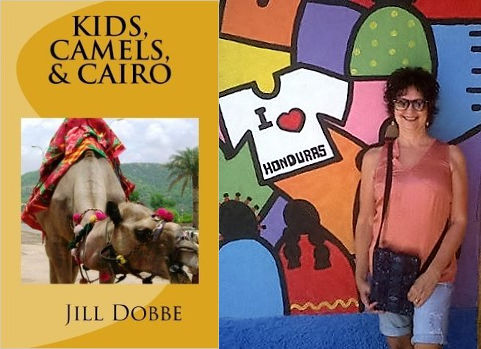
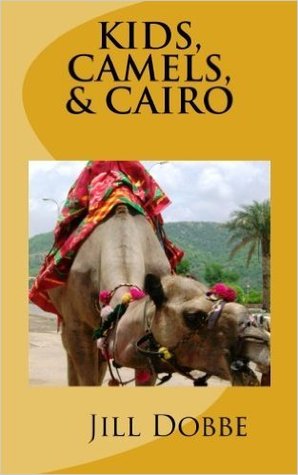


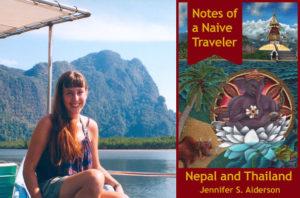
Pingback: Spotlight On… – Jennifer S. Alderson
Pingback: Interview with Expat Fiction author Annika Milisic-Stanley – Jennifer S. Alderson
Pingback: The Birth of a Novel by Pamela Allegretto – Jennifer S. Alderson
You certainly have a lot of material to draw from for your memoirs! Like, Pamela, I’ll add your books to my to-be-read list!
Thank you Beth! I do have a lot of info, but I’m not always sure what will interest readers. I guess that’s how it is with memoir writing.
Wonderful article. My compliments! I will certainly put your book on my “to-read” list.
Thank you Pamela!